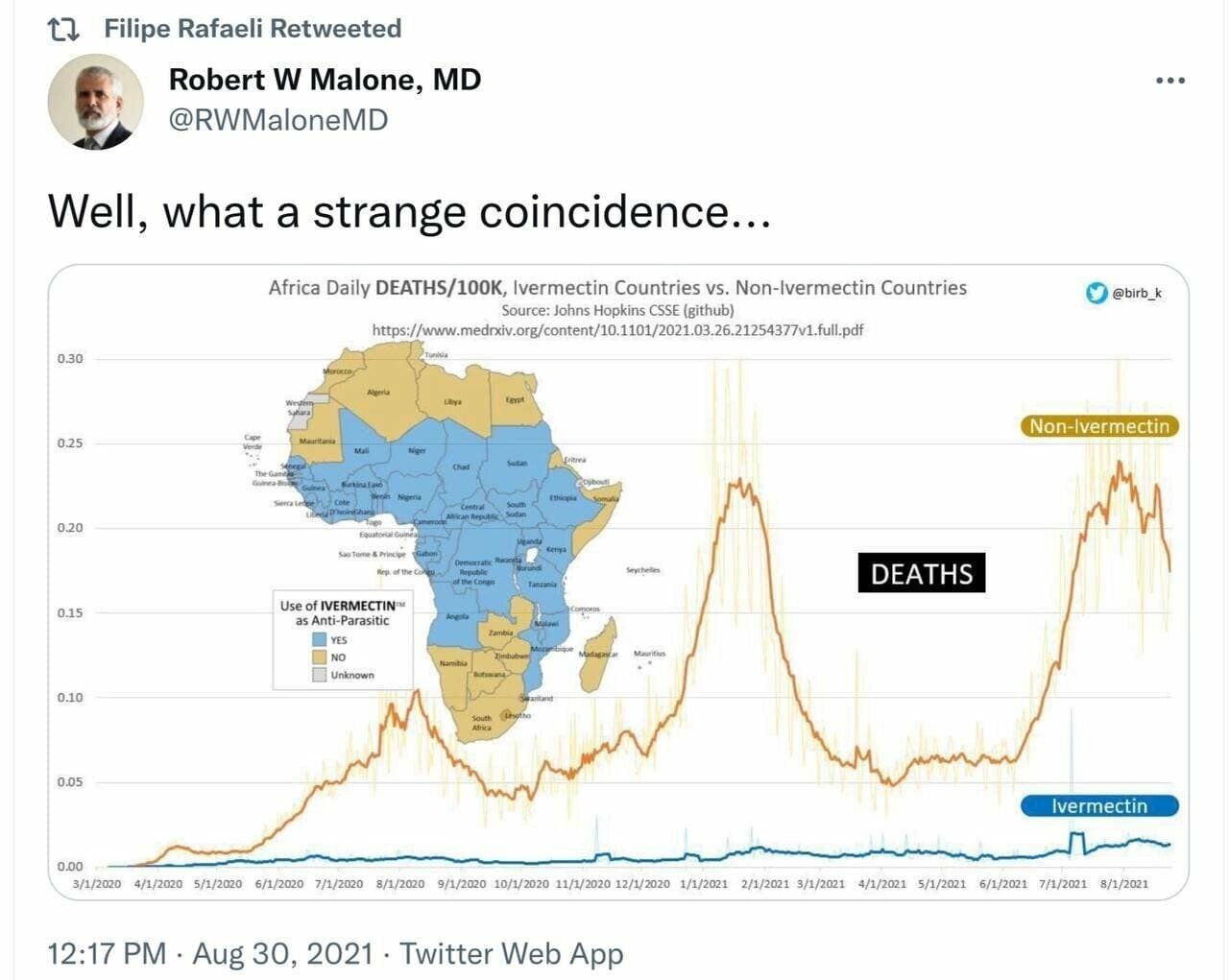The Chairman of the Tokyo Medical Association, Dr. Haruo Ozaki, recommends Ivermectin for use with COVID patients.
He notes that the parts of Africa that use ivermectin to control parasites have a COVID death rate of just 2.2 per 100,000 population, as compared to 13 times that death rate among African countries that do not use ivermectin.
Similarly, worldometer.com statistics say that the COVID death rate in India (which uses HCQ and Ivermectin to treat COVID) is 32 while the COVID death rate in the U.S.A. is 6.5 times higher at 205 per 100,000 population.
The official guidelines for doctors from the Japanese Ministry of Health states that "compared to standard treatment and placebo, ivermectin did not reduce deaths, shorten the hospitalization period and improve time of virus disappearance."
A clinical study by Japan's Kitasato University on ivermectin as a Covid-19 treatment is ongoing.
Health Canada issued a statement pointing out "Health Canada has received concerning reports of the use of veterinary ivermectin to prevent or treat Covid-19. Canadians should never consume health products intended for animals because of the potential serious health dangers posed by them," it said in the statement.
Of course it is also necessary to point out Ivermectin is an oral drug approved in Canada for the treatment of certain parasitic infections (e.g. strongyloidiasis and onchocerciasis) and has been approved for decades. The government issued restrictions on it's prescribed use due to possible shortages of supply. (Link)
And to be clear, the Government of Japan has not approved it for use to treat Covid-19, the Chairman has asked that they consider allowing doctors to prescribe it. “I would like the government to consider treatment at the level of the family doctor.” with the informed consent of the patient.
It does seem strange that elected officials are promoting policies to prevent people from refusing a vaccine without their consent, while disallowing them the right to choose with their consent.
Medical informed consent is ethically, morally, and legally mandated by the fiduciary responsibilities flowing from the patient-physician relationship. (Link)











